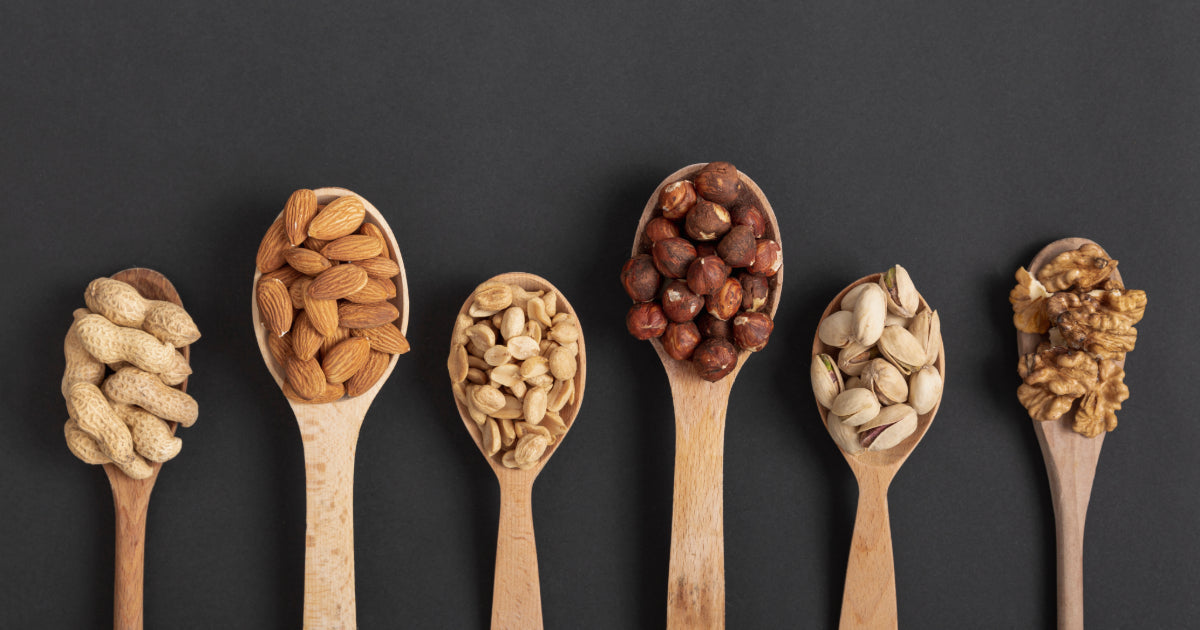The Power of Magnesium: Foods Rich in This Essential Mineral

Magnesium is a vital mineral that plays a crucial role in numerous bodily functions, yet many people do not get enough of it in their diets. Known for its ability to support muscle and nerve function, magnesium also contributes to energy production, bone health, and even mental well-being. Incorporating magnesium-rich foods into your diet is an excellent way to ensure you meet your daily requirements. Let’s explore some of the best sources of magnesium and their health benefits.
Why Is Magnesium Important?
Magnesium is involved in over 300 biochemical reactions in the body. It helps regulate muscle contractions, supports immune function, and maintains normal heart rhythms. Additionally, magnesium aids in the synthesis of protein, the metabolism of energy, and the regulation of blood sugar levels. Low magnesium levels have been linked to various health issues, including muscle cramps, fatigue, and increased risk of chronic diseases like hypertension and diabetes.
Top Foods Rich in Magnesium
1. Leafy Greens
Dark leafy greens are among the most nutrient-dense foods available. Spinach, kale, and Swiss chard are excellent sources of magnesium. Just one cup of cooked spinach can provide about 157 mg of magnesium, which is roughly 39% of the recommended daily intake for adults. Incorporating these greens into salads, smoothies, or stir-fries is an easy way to boost your magnesium levels.
2. Nuts and Seeds
Nuts and seeds are not only delicious but also packed with essential nutrients, including magnesium. Almonds, cashews, and pumpkin seeds are particularly high in this mineral. For instance, a one-ounce serving of almonds contains about 76 mg of magnesium, making them a great snack option. Sprinkle seeds on salads or yogurt, or enjoy a handful of nuts between meals for a quick energy boost.
3. Whole Grains
Whole grains, such as brown rice, quinoa, and oats, are excellent sources of magnesium. Quinoa, in particular, is a complete protein that provides about 118 mg of magnesium per cooked cup. Opting for whole grains over refined grains not only increases your magnesium intake but also offers additional fiber and nutrients that support digestive health.
4. Legumes
Legumes, including beans, lentils, and chickpeas, are fantastic sources of magnesium. One cup of boiled black beans provides around 60 mg of magnesium. They are also high in protein and fiber, making them a nutritious addition to any meal. Try adding legumes to soups, salads, or as a meat substitute in various dishes.
5. Avocado
This creamy fruit is not just a trendy addition to toast; avocados are also a good source of magnesium. One medium avocado contains approximately 58 mg of magnesium, along with healthy fats and a variety of vitamins. Incorporate avocados into salads, smoothies, or enjoy them on their own for a nutritious snack.
6. Dark Chocolate
Good news for chocolate lovers! Dark chocolate (with at least 70% cocoa) is rich in magnesium. A one-ounce serving can provide about 64 mg of magnesium. Dark chocolate also contains antioxidants that are beneficial for heart health. Just remember to enjoy it in moderation!
7. Fish
Certain fish, such as salmon and mackerel, are not only rich in omega-3 fatty acids but also provide a decent amount of magnesium. A 3.5-ounce serving of cooked salmon offers about 37 mg of magnesium. Including fish in your diet a couple of times a week can contribute to your magnesium intake while also promoting heart health.
Conclusion
Ensuring you get enough magnesium is essential for overall health and well-being. By incorporating a variety of magnesium-rich foods into your diet—such as leafy greens, nuts, seeds, whole grains, legumes, avocados, dark chocolate, and fish—you can easily meet your daily magnesium needs. Not only will these foods support your physical health, but they can also enhance your mental well-being, making them important additions to a balanced diet. Embrace the power of magnesium and enjoy the many benefits it brings!









